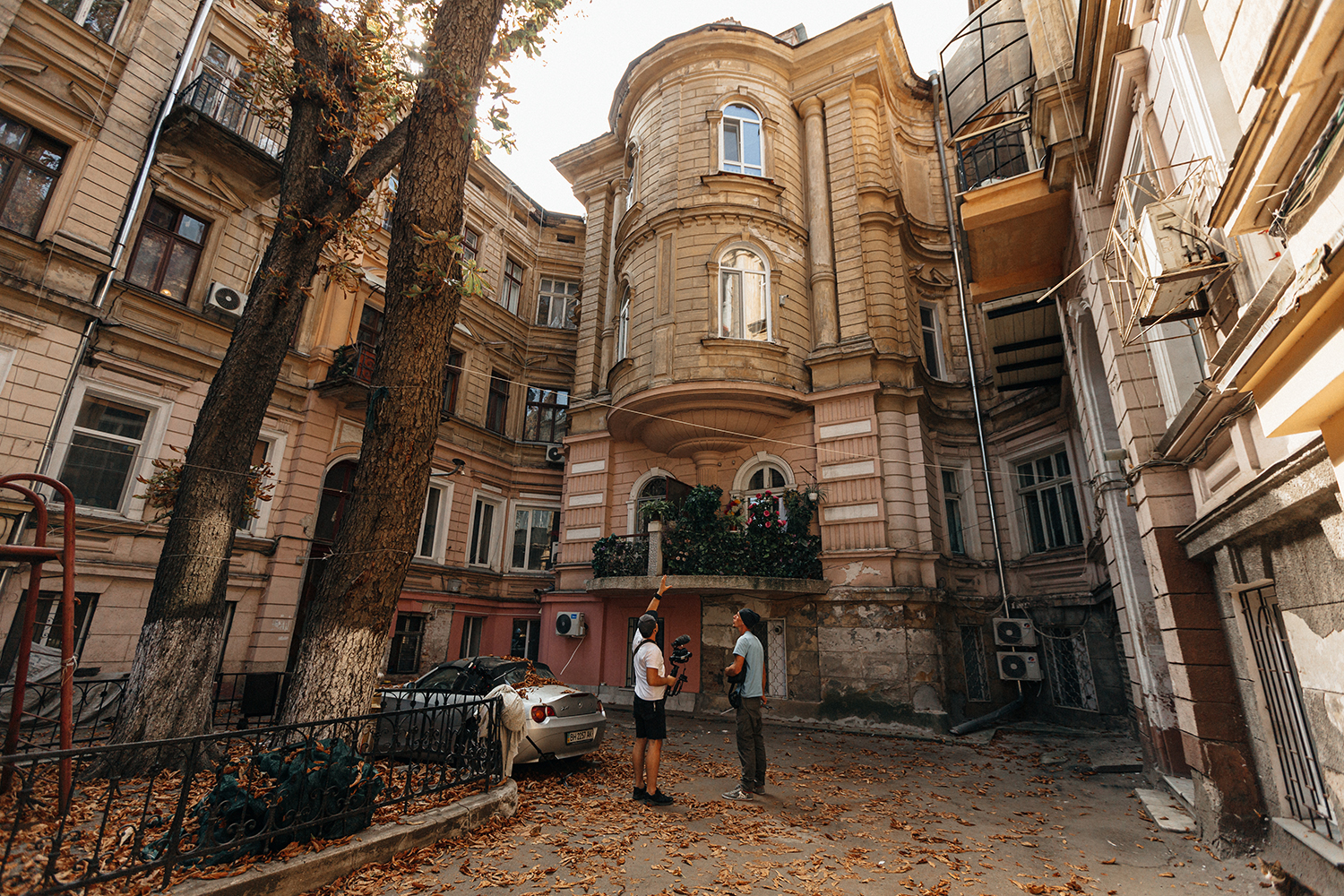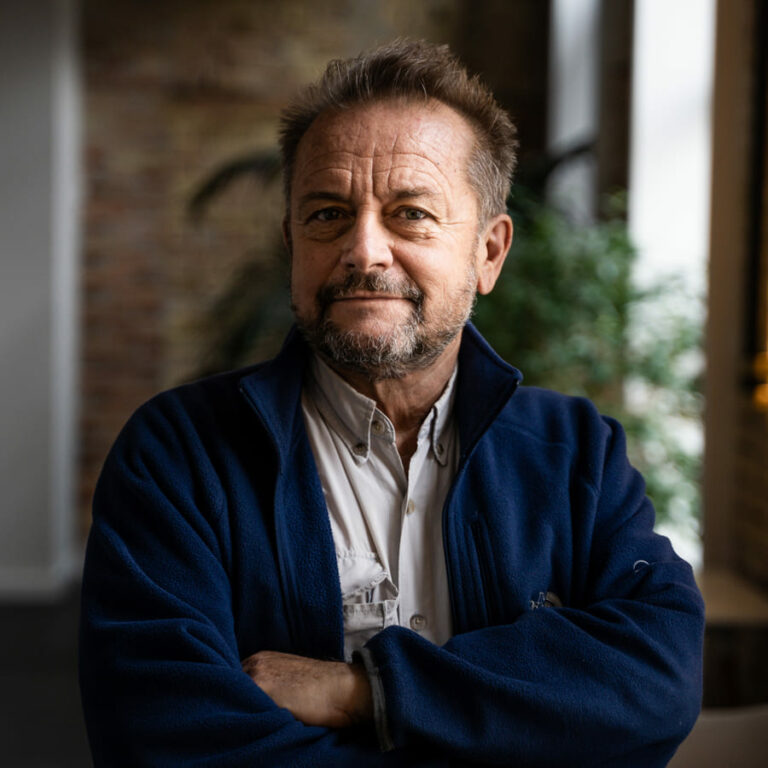
Our fourth episode of Ukraine Through the Eyes of Reporters features Lorenzo Cremonesi, the Italian journalist. For more than forty years, Lorenzo has written for one of the major Italian newspapers – “Corriere della Sera,” the oldest daily in Italy. In this interview, he shares his opinion on presenting the facts if there is no possibility of checking them and explains the roots of the Italian government’s pro-Russian position.
Ukraine Through the Eyes of Reporters is a special series aimed at highlighting the work of international journalist in covering the Russian war against Ukraine and understanding how they approach their important role.

Can you tell about your journalistic background?
Like my grandfather, I became a journalist. For twenty years, I’ve been a correspondent in Jerusalem. Then in the Middle East, in Lebanon, when the Israeli-Palestinian question was really the central question of the Middle East – I covered Lebanon, Iraq, and Afghanistan. My career changed after 2001, after the 11th of September when I went to Iraq and I spent there five-six years. So, you can call me a war correspondent. I came to Ukraine in 2014 for the Maidan. I remember covering, in particular, the tragic event of an Air Malaysia airplane with many civilians onboard. Among them, there were children, and it was a particular story because I found out there was a local pro-Russian soldier who openly told me they shot it down. So I was also called to an international trial as a witness. Then I was called by my newspaper to talk about the situation now, in the early morning of the Russian attack, it was about five o’clock. I reached Kyiv quite quickly and stayed there for the first month and a half and went to Bucha and Irpin. I was a lot on the battlefield, from Donbas to Kherson. [In my life] I wrote five or six books. One of the last books just appeared in Italy, called Guerra Inifinita or Infinite War. And it’s a book about forty years of my experience as a war correspondent, but of course, there is a lot about Ukraine, too.
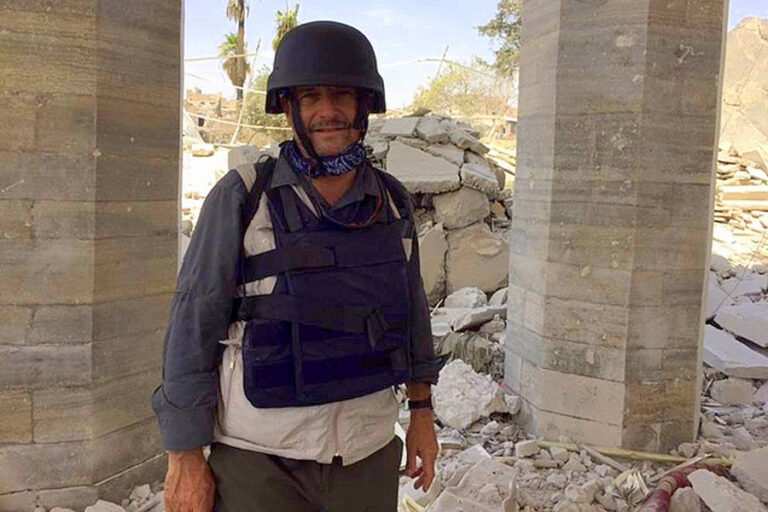
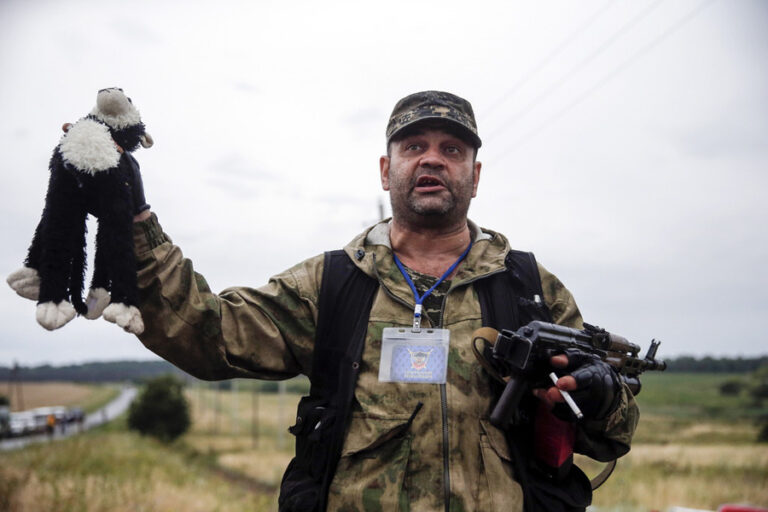
slideshow
Do you see any parallels or differences between the war in the Middle East and what is happening between Ukraine and Russia right now?
The biggest difference is there are two main elements in this war. Firstly, this is a conventional war. The last conventional war began with the American invasion of Iraq in 2003. It was just the beginning because a “real war was not during the invasion, the month of invasion between March and April 2003, but it was a guerilla war after – mainly terrorism, non-conventional forces, standing army against a group of guerilla. And here we have a conventional war, as there is a standing army, the Russian army, against the Ukrainian Army. Of course, there are many volunteers, but these volunteers are organized as an army. So this is one of the main elements of this war. The second element, which characterizes the war in Ukraine, is that this is a European war. We, Western Europeans, had this illusion that the war was something which didn’t affect us, something from “primitive people”, from the Middle East, from Afghanistan, Pakistan, far East. [We believed] that we were clean, as the war ended in 1945, and thank God, we have NATO, we have international organizations, so the war didn’t concern us.
The main idea was that if you were an advanced and civilized person, you would have a diplomatic apparatus, and you were state-organized, which means you could solve conflict with dialogue, with negotiation, with diplomacy. War is all around us, we simply don’t want to look at it. Now what is happening here is the attack by Putin which proves my point, that the rule of force, the power of the nation decides to invade another army just simply because it feels it’s stronger. And we have to learn how to defend ourselves, that’s why I really look at this Ukrainian resistance as a kind of teaching lesson. The Afghans, who are our allies, failed, they were defeated, I think we have a big responsibility for that. And what happened? Afghan girls cannot go to school. Afghan women have to cover themselves. There is a theocracy, very dangerous, and terrorism is going back. On the other hand, Ukrainians are resisting. They are defending their freedom, they are defending their liberty and independence.

If I look back at the last eight years, I remember a few moments. The first one that came to my mind is the Kerch crisis in 2018, when the Russians build the bridge, close the Azov sea, and even took two or three Ukrainian boats. I went to Mariupol, and it was lots of attention, a wave of articles, but then again the story went down. The idea was that Ukraine was seldom defending itself, it was not a real army, there was no comparison between the strength of the two, and it was more a kind of army of volunteers. The story of the Azov battalion came out very often, in this case, the Russian propaganda was very strong. They told that the battalion consisted of extreme nationalists with neo-Nazi values. The swastika story came out many times. So, the story was more about “the Russian army” and “the Ukrainian resistance composed of ambiguous elements”. That way, when the Russians attacked, the European region, Italy in particular, thought that one day the Russians would win. The Russian would take over. That was a general perception, from a little journalist, a young newcomer, to a big commentator, politician, historian. And I remember coming here, looking at Bucha and, of course, at the frontline. And I remember the 1st of March, which means six days after the beginning of the invasion, I called my editor-in-chief and told him, “We should write a story, a kind of column with a question mark, ‘What if Putin looses?’”. I wanted to change the narrative. And it took me some time to try to convince them.
Did you think that Ukraine is going to fall in three days? Have you had any doubt in that question?
I have to tell you, I thought that the Russians who are entering would win easily. But I was thinking there would be a partisan resistance inside Russian lines, inside Russian-occupied territory. And for me, it was extremely difficult to come from Lviv to Kyiv. The train route was in total chaos. And then I found a young guy, who took me by car, and we got under the shelling. The motorway itself was bombed, I saw bodies, people killed in the cars, there was shooting, there was confusion, there were self-organized committees of people resisting, with hunting guns, with all sorts of pistols, trying to defend themselves. My first concern was that many journalists were escaping. And I was going against the wave. And I remember I was looking for food and a place with a generator. I was not a tourist, I needed to send my stories. I was shopping near Maidan and I found there was a little supermarket open, very few people were going around, and I took food in cans, bread, and water bottles. And there was a guy, who was a colonel in the air defense unit, who just retired last year, and had a lot of friends fighting. He told me a story of [the battle for] Hostomel, which we didn’t know at that time, and I believed him. But that story still seemed like a rumour. I remember Reuters AP wrote a little story, that the Ukrainians were able to destroy the best unit of the Russian army trying to take the airport. He told me that, and I thought it made sense with what I saw on the ground.

Every war has propaganda. I talked with local soldiers of a very agile little Ukrainian unit with Javelin and NLAW missiles. And I spoke with people from Irpin. When I asked them what happened when they saw that Russians were entering their home, “What did they do?” They said, “They didn’t look at us, they went to the fridge and took the food.” And that was a real proof that the Russians were not ready. So they failed the first operation, which was to capture Kyiv with a special squat. And this guy gave me all the details — which units, how many soldiers. There were three Iliushyn-76 transport troops shot down at the airport on the ground, and they lost about six hundred soldiers. The first few hours, these soldiers were supposed to arrive in Kyiv, to join with a local sleeping forces, kill Zelenskyy, and take the city. But the Russians didn’t have a plan B when this plan failed. It’s another war, and I’m not sure the time will work for the Russians. Because now the West has started to help, and the Ukrainians get good weapons, and then, we don’t know what will happen.
What do you keep in mind as you’re writing a story?
Globalization is a factor I keep in mind. I’m a writer basically, but in the last ten years, I have to take pictures, do videos, and sometimes my videos are more effective than my writing, and many people read me, because they see my video. So I cannot avoid it, even though I’m a very bad photographer. Second, the propaganda. When at the end of a first month, Russians clearly lost the battle of Kyiv, they started claiming, “No-no-no, we never wanted to take Kyiv, just wanted to go to Donbas,” which was also wrong. When the Russians talk about provocation is all bullshit, because there was no provocation, it was Russians who were lying, and they wanted to attack.
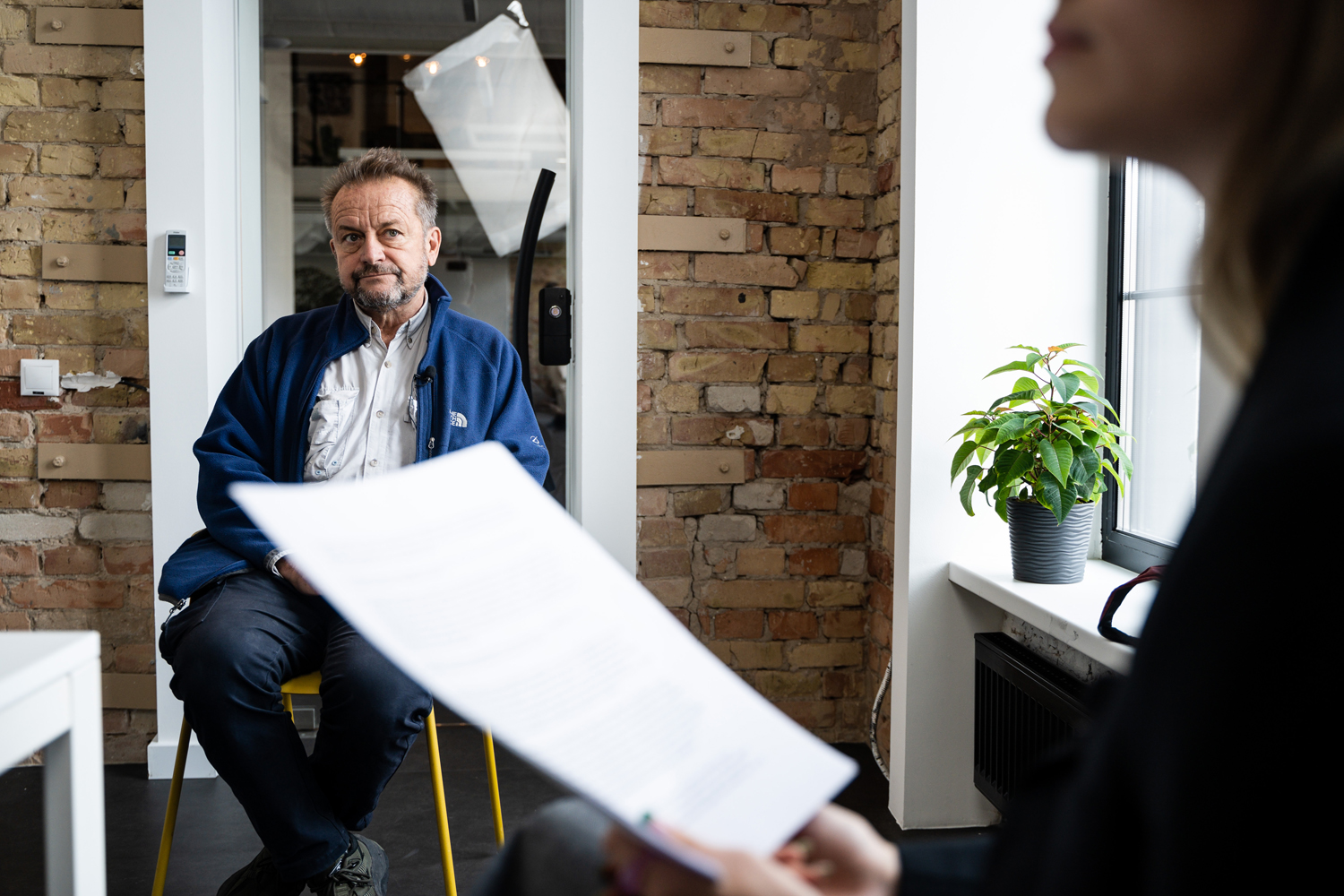
Why do people, who know that Russia has lied so many times throughout history but also in the last 10 months, still continue to believe their side?
We are going to the Italian ground, and why in Italy till now, there is this strong Russian sympathy. Italian TV calls me almost every day. And I’m surprised to find all my friends, people who are teachers, professors from universities, senior journalists being openly pro-Russian. Now, there are some explanations. First of all, I’d like to remind you that in Italy, there was the strongest Communist party in Western Europe after the Second World war. Italian Communist party was almost winning the elections in 1946. That’s very important. The Italian Communist party was historically, and culturally deeply connected with Russia. It was the most connected Western European country to Soviet Russia. You don’t destroy this past in 20 or 30 years. There is another element. Italian culture, Italian fashion, and the Italian way of living was very much liked around in Russia. I can see that till now, Celentano restaurant is also in Russia. People also like Celentano singer, various famous Italian artists are still going to Russia to perform. So, this is one element. The second element which is also very much entrenched, very much deeply connected to European and to Italian anti-Americanism. There is an anti-american feeling which is hard to believe, it’s hard to comprehend, but it’s still there. Berlusconi is now a senior member of the Italian government, who repeats the same sentences of Putin. He says, “We are attacking because Zelensky attacked us. He didn’t keep the word, didn’t keep the agreement, so we have to defend ourselves”. Berlusconi repeated that openly in the Parliament with some members of his party, and it was recorded, and it became a big scandal. This is somehow accepted. So there is an idea that it’s not a Russian invasion, but it’s an American-organized plot to weaken Russia. Another idea which was very much spread in Italy and in the West is that Putin had to defend himself because NATO is expanding which is totally not true. NATO was so weak in the few last years. Donald Trump was right to ask the partner in Europe: “You want to keep NATO? Pay money! Participate in the expenses.” Italy spent less than 2% on defense. Now Germany is trying to rearm and it’s creating problems with France. We even call the Pope “catho-communismo” in Italy. At this catho-communismo, we have 2 big traditions: the Christian tradition and the communist. At some point, they are together, especially on the anti-Americanismo, anti-capitalismo and they oppose to the imperialists, to the Americans. This culture is deeply entrenched in Italy. The liberal culture, the democracy is much less important, it is a minority.
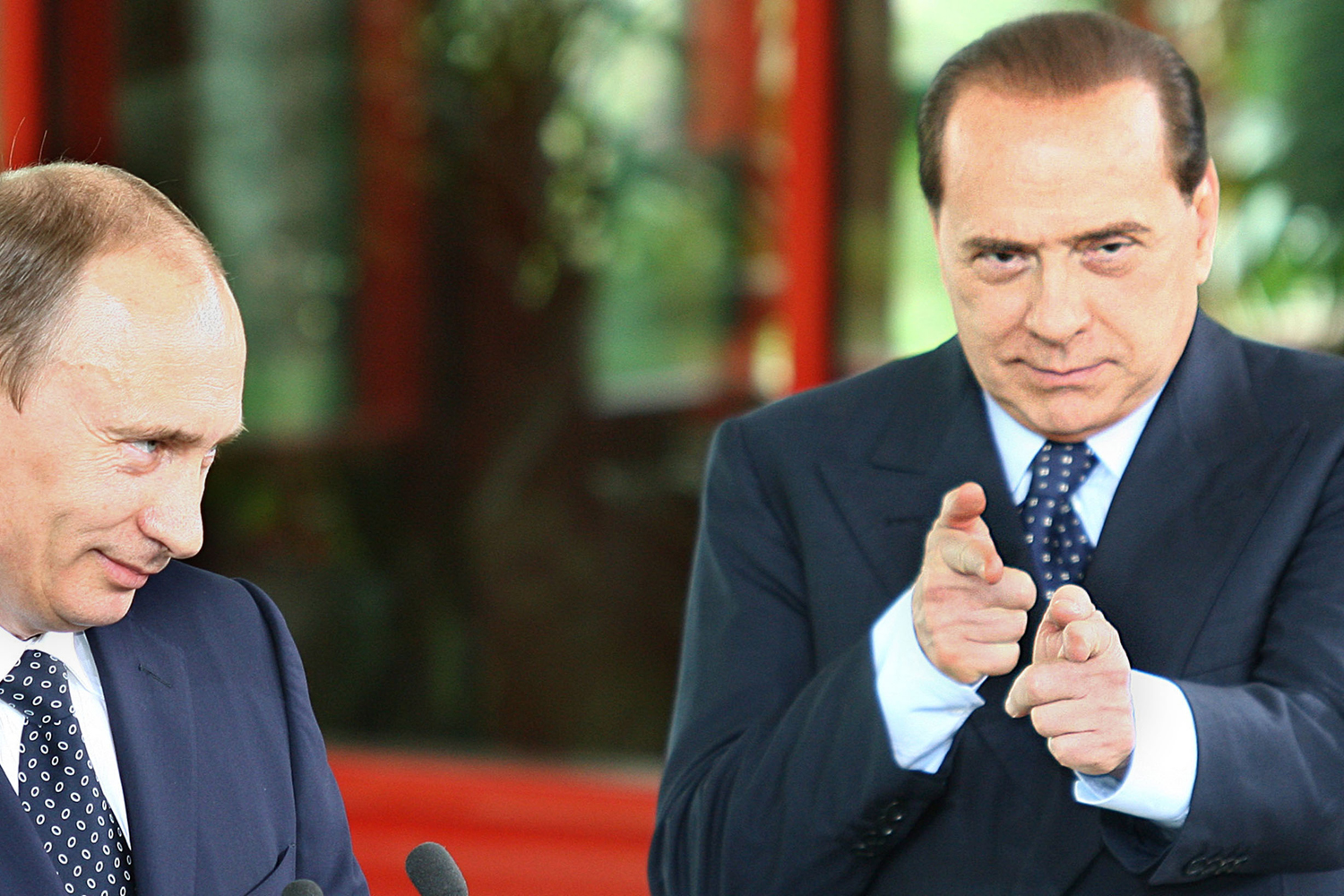
How do you then make an effort to convince people that those things are not true?
You know, in Italy, when there was the first story of Bucha massacres, they were saying there were no bodies. I mean, they were repeating the Russian propaganda, and that it’s not true. “The journalists who are there are paid by CIA.” I remember one day I said, “So, am I a CIA agent? Getting money from CIA? Please, CIA, pay me, because I would like to get my salary.” Do you remember, the first 48 hours the Americans called Zelenskyy, and told him to get out. “They want to kill you, get out. We take you to Poland, Moldavia, wherever outside, and there you’re gonna organize a government in exile, your resistance, but they want to kill you, and we save you. You are crazy to stay.” Even the Americans didn’t believe the Ukrainians would have resisted. And what happened? Zelensky said “no”, and this changed the narrative. This changes the story.
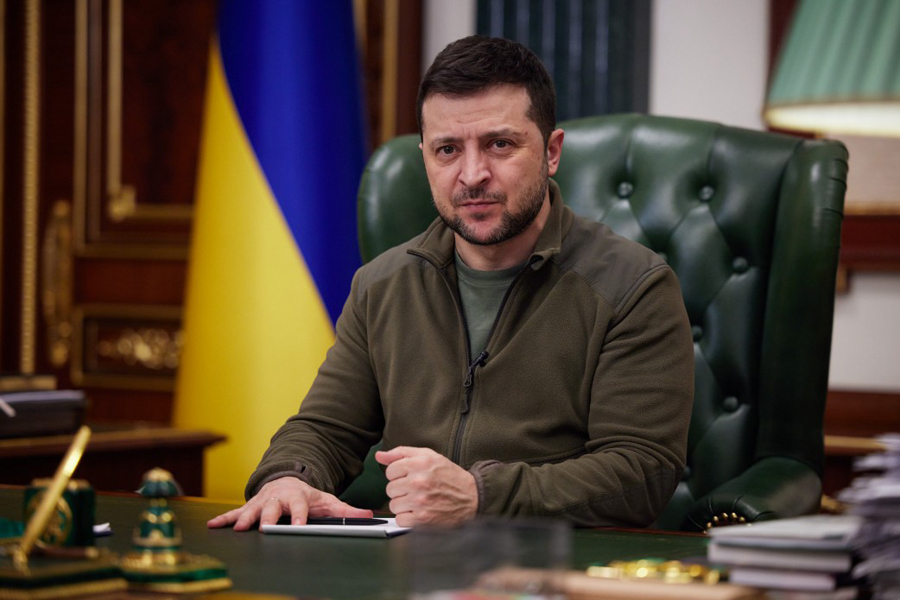
So, the argument I have and I keep repeating is that America was not interested and actually didn’t want this war. Because the main argument, the main problem since Barak Obama up until today for America is China. And for them at the beginning, this was a diversion from the major problem which was the Pacific Ocean, Taiwan, China, and the dictatorship there. So, they really wanted to take it out, the Americans have a lot of problems, you know, they make a lot of mistakes. And they knew that the Russian army is not as strong as Putin claims. But in Italy, this war is perceived as more pro-Russian. And many of the important relevant components of the new Italian government are deeply pro-Russian.
Coming to the end of the conversation, what’s your advice to people in journalism, specifically those, who are just starting to cover this war now?
My answer is to go to the field. Don’t be afraid, stay there for weeks, not days. If you go to Bakhmut, go to Bakhmut, sleep in Kramatorsk. Go and see around, talk with people. Go to the ground. Volunteering is the secret of Ukrainian resistance. Zelensky is not leading the people, Zelensky is the incarnation, let’s use this catholic word — “incarnation”. He’s the spokesman of his own people. And for me, this is a very good lesson, again. European democracy means freedom and freedom of the press. I insist that liberty, democracy, and pluralism must be defended even with weapons, and Ukrainian people are ready to die. They need to be convinced that they defend something which is right. These people, women and men, young and old, are constantly telling me, “I’m willing to fight and die”. And it’s not rhetorical.

And the last question — what is your favourite place in Ukraine?
I like Odesa very much. Because you can feel the history, you can see the flourishing of different cultures in the buildings. You can see the cosmopolitan past, the beauty. Also, as someone from the Mediterranean, I love the Mediterranean Sea, I was very suspicious of the Black Sea. Because I’ve been to Istanbul a lot, it’s very-very polluted, the Marmaris Sea. And here the sea is quite clean and there is good fish. And I really like this air, this atmosphere of openness, cosmopolitanism, of pluralism in Odesa.
